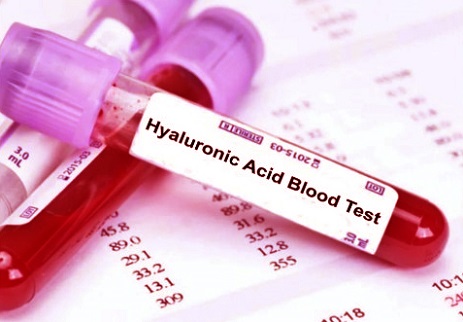Nikhil Prasad Fact checked by:Thailand Medical News Team Dec 10, 2024 1 year, 1 month, 3 weeks, 3 days, 4 hours, 14 minutes ago
Medical News: COVID-19 has reshaped the global healthcare landscape, prompting extensive research into biomarkers that can enhance diagnosis and prognosis. One such emerging marker is hyaluronic acid (HA), a natural molecule in the human body. A study by researchers from the Medical University of Bialystok and the Provincial Welded Hospital in Poland highlights HA’s potential in diagnosing and predicting COVID-19 severity. This
Medical News report delves into their findings to provide clarity for everyone.
 New Diagnostic Potential of Hyaluronic Acid in COVID-19
New Diagnostic Potential of Hyaluronic Acid in COVID-19
Hyaluronic acid is a component of the extracellular matrix, found in connective tissues and bodily fluids. It plays a crucial role in processes like hydration, inflammation, and cellular repair. During severe infections, like COVID-19, the body’s Hyaluronic Acid levels can fluctuate, offering insights into the disease’s progression.
Study Setup and Participant Analysis
The research included 87 COVID-19 patients and 45 healthy individuals for comparison. The patients were categorized based on disease severity: moderate, severe, and critical. The researchers measured HA levels using an advanced immunochemical method. They also considered factors like age, oxygen therapy, and coexisting conditions, creating a comprehensive analysis framework.
On admission, COVID-19 patients exhibited significantly higher Hyaluronic Acid levels compared to healthy controls. Patients with critical disease stages had the highest HA concentrations, showcasing a clear correlation between HA levels and disease severity. This biomarker also showed strong potential in predicting mortality, with non-survivors having much higher Hyaluronic Acid concentrations than survivors.
Key Findings from the Study
-Hyaluronic Acid and Disease Severity
Moderate cases showed HA levels averaging 57.5 ng/mL, while severe cases had levels of 137.8 ng/mL. Critically ill patients exhibited a dramatic spike, averaging 281.1 ng/mL. The upward trend underscores Hyaluronic Acid’s utility in monitoring disease progression.
-Impact of Oxygen Therapy
Hyaluronic Acid levels varied significantly based on the type of oxygen therapy required. Patients on ventilators had HA concentrations as high as 417.5 ng/mL compared to 50.9 ng/mL in those not needing supplemental oxygen.
-Hyaluronic Acid in Cytokine Storms
Patients experiencing cytokine storms - a dangerous inflammatory response - had significantly elevated HA levels, averaging 187 ng/mL compared to 56.9 ng/mL in those without cytokine storms.
-Survival Outcomes
Hyaluronic Acid levels in survivors averaged 61.1 ng/mL, whereas non-survivors had concentrations as high as 210 ng/mL, marking it as a robust predictor of mortality.
-Diagnostic Power
Hyaluronic Acid dem
onstrated excellent diagnostic accuracy, with an area under the curve (AUC) of 0.994 for critical cases. It also showed high sensitivity (83.3%) and specificity (97.8%) in identifying severe cases.
Conclusions and Implications
This study positions serum hyaluronic acid as a promising biomarker for COVID-19. Its strong correlation with disease severity, oxygen dependency, and survival outcomes suggests it could become a valuable tool in clinical settings. By identifying patients at higher risk earlier, Hyaluronic Acid measurements could guide timely interventions, potentially reducing complications and improving survival rates.
Hyaluronic acid also opens avenues for broader applications in respiratory and inflammatory conditions beyond COVID-19. However, researchers emphasize the need for larger, multicentric studies to validate these findings across diverse populations.
In summary, Hyaluronic Acid is more than a structural molecule; it is a window into the body’s response to severe infections. Its diagnostic and predictive capabilities could revolutionize COVID-19 management, particularly in identifying critical cases early and guiding personalized treatments.
The study findings were published in the peer-reviewed Journal of Clinical Medicine.
https://www.mdpi.com/2077-0383/13/23/7471
For the latest COVID-19 News, keep on logging to Thailand
Medical News.
Read Also:
https://www.thailandmedical.news/news/spanish-scientists-identify-plasma-proteins-that-can-be-used-as-predictors-of-covid-19-disease-severity
https://www.thailandmedical.news/news/transgelin-emerging-as-a-key-biomarker-for-covid-19-severity
